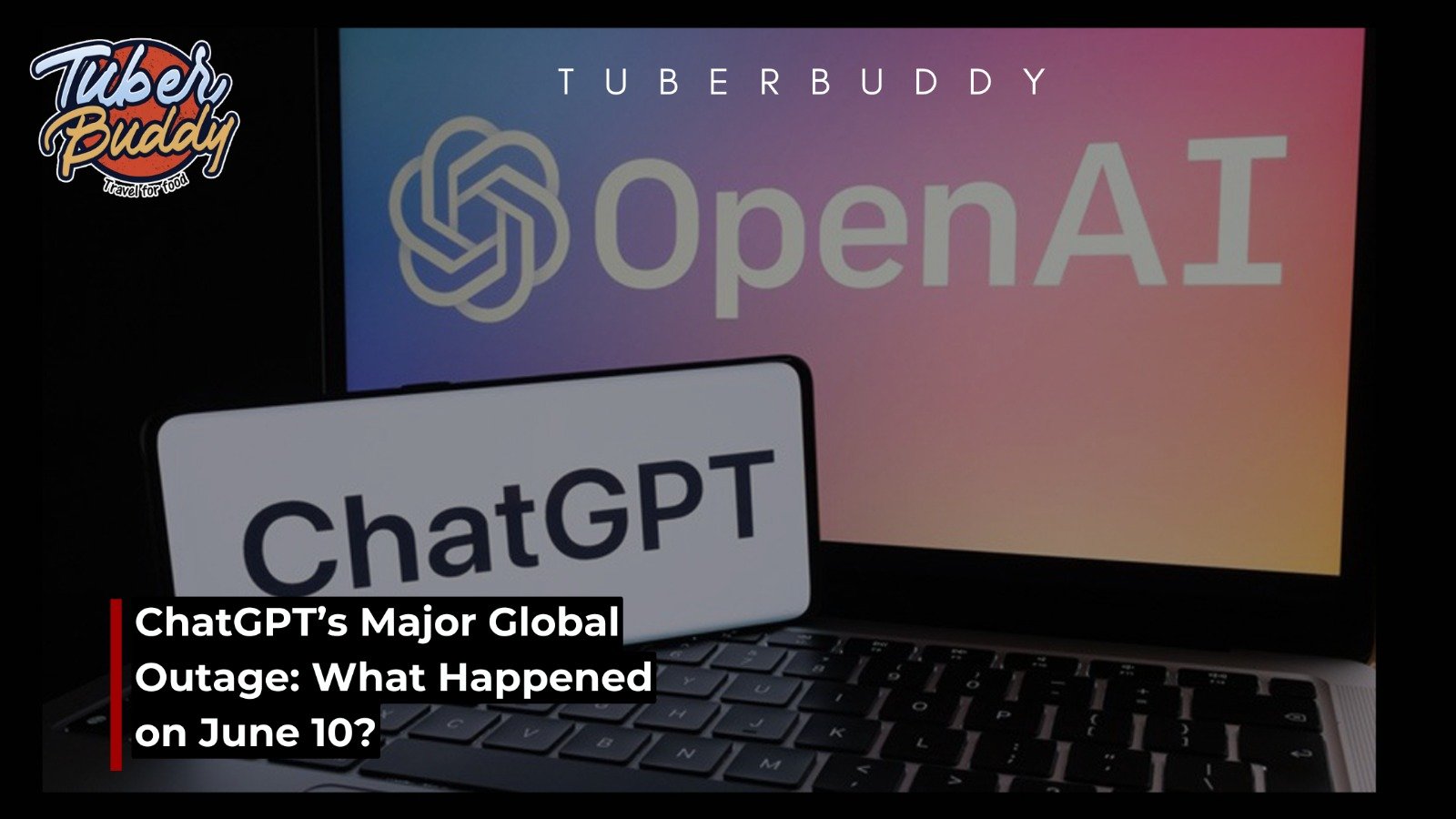ChatGPT’s Major Global Outage : What happened on June 10?

On June 10, 2025, the world witnessed one of the most significant disruptions in AI history as ChatGPT, OpenAI’s flagship generative AI chatbot, went down for millions of users across the globe. Sporadic errors quickly escalated into a full-blown outage, leaving businesses, students, and professionals stranded in the middle of their workflows. The incident not only exposed the fragility of our AI-dependent ecosystems but also sparked crucial conversations about the sustainability of over-reliance on artificial intelligence.
The Timeline of the Outage
The first signs of trouble appeared in the early hours of June 10, when users began reporting intermittent connectivity issues. OpenAI’s status page was soon updated to reflect a partial outage, stating: “ChatGPT is unavailable for some users.” Within hours, the situation worsened—error messages like “Message stream failed” and “Server overload” became rampant.
By midday, the outage had reached its peak, with 88% of web users and 8% of mobile app users unable to access the service. Real-time outage trackers showed concentrated disruptions in India and the United States, two of ChatGPT’s largest markets. In India alone, over 800 official complaints were filed, while social media platforms, particularly X (formerly Twitter), exploded with reactions ranging from frustration to memes.
Why Did This Happen?
While OpenAI has yet to release an official post-mortem, tech analysts speculate several potential causes:
Unprecedented Server Load – ChatGPT’s user base has grown exponentially since its launch, and a sudden surge in demand (possibly from enterprise clients or academic institutions) may have overwhelmed servers.
Failed Update or Patch – A backend update intended to improve performance might have backfired, causing cascading failures.
Cybersecurity Incident – Though unlikely, some experts raised concerns about a possible DDoS attack or API exploit.
Third-Party Dependency Failure – ChatGPT relies on cloud infrastructure providers; an outage in their services could have triggered this disruption.
The Global Impact
The outage had far-reaching consequences:
Businesses relying on ChatGPT for customer support, content generation, and coding faced operational delays.
Students preparing for exams or working on assignments were left scrambling for alternatives.
Developers using ChatGPT’s API for integrations saw their applications malfunction.
Social media became a hub for reactions—some users humorously posted, “AI rebellion has begun!” while others shared screenshots of their half-written AI-assisted projects, lamenting their dependence on the tool.
The Bigger Lesson: Over-Reliance on AI is Risky
This incident highlighted a critical flaw in modern digital workflows: What happens when AI fails? Many users realized they had no backup plan, having grown accustomed to ChatGPT handling tasks like drafting emails, debugging code, or brainstorming ideas.
Exploring Alternatives
While ChatGPT continues to dominate the generative AI landscape, this widespread service disruption serves as a stark reminder of the necessity of maintaining multiple technological options.
Google Gemini – A robust alternative with deep integration into Google Workspace.
Claude AI – Known for its ethical AI approach and strong reasoning capabilities.
Open-Source Models (Llama 3, Mistral) – Self-hosted options for those needing offline reliability.
Traditional Methods – Books, human collaboration, and critical thinking skills remain irreplaceable.
A Call for Balance: Use AI, But Don’t Lose Your Edge
The June 10 outage was more than a technical hiccup—it was a stress test on society’s AI dependence.Artificial intelligence may streamline processes, but it cannot replicate the depth of human imagination Here’s why:
AI is not infallible – Bugs, outages, and biases exist.
Overuse dulls creativity – Relying solely on AI weakens problem-solving skills.
The “AI saturation” risk – If everyone depends on the same tools, systemic failures will have catastrophic ripple effects.
Final Thoughts: Prepare for the Next Blackout
Rather than panicking during the next outage, users should:
✔ Diversify tools – Don’t rely on just one AI provider.
✔ Sharpen manual skills – Practice writing, coding, and researching without AI.
✔ Advocate for transparency – Demand clearer outage explanations from AI firms.
The June 10 ChatGPT blackout was a warning shot—a reminder that while AI is powerful, human adaptability is irreplaceable. Let’s use this lesson to build a future where AI assists, rather than controls, our progress.
Stay updated with the latest AI news—subscribe for real-time insights!–Follow TuberBuddy.
